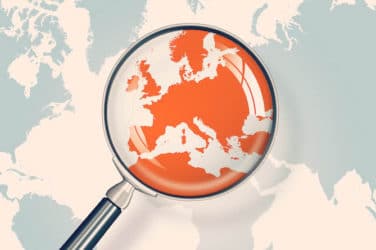
“Whatever it takes” are the three words that investors are clinging to in the hope that it preserves the beleaguered euro.
The vow, which came from Mario Draghi last week, head of the European Central Bank (ECB), was widely interpreted as a promise to intervene in the sovereign bond markets. Markets have since rebounded on Draghi’s tough-talking and borrowing costs for struggling southern European nations Italy and Spain have been pushed down.
However, there is no detail, yet, behind the rhetoric—tomorrow’s ECB policy-making meeting may shed some new light on that—but some market participants think that three other words that Draghi used last week may actually come to mean more. The ECB chief also mentioned that he can only act “within our mandate”, which is at present very limited and precisely how the German Bundesbank, its central bank, which remains opposed to bond buying by the ECB, intends to keep it.
“There has been a relief rally in equities after Draghi told the markets ‘whatever it takes’,” Nicola Marinelli, portfolio manager at Glendevon King Asset Management, a fixed income boutique based in London, told Markets Media.
“But three other words he said—‘within our mandate’— are probably more important. It seems that markets just want to focus on the good news as everyone wants to be happy for the vacation. No-one has really talked about who is going to pay or if they are going to give the ESM [European Stability Mechanism] a banking license. All the details are missing.”
If the ESM, the euro region’s planned rescue fund, gets a banking license, it could effectively buy Spanish and Italian bonds “on margin” because the ESM could tap the ECB’s unlimited lending facilities. The ESM, at present, has a cap of €500 billion on total debt purchases but would need, among other things, Germany’s approval to change this.
Germany, though, does not want to take on the extra liabilities of bond-buying, especially via the ECB, without greater control over other nations’ budgets.
“In the past, all crises in Europe have always been solved by more union, not less,” Yannick Naud, portfolio manager at Glendevon King Asset Management, told Markets Media. “Now there is quite weak leadership across Europe and people are much less in favor of the project. So to go from here into more cohesion is mighty difficult. It will have to be imposed by political leadership—I can’t see it coming.”
With Spain on the brink of needing a rescue, which may bleed dry the eurozone’s rescue fund, and Italy, which is €1.2 trillion in debt, potentially next, it appears that the crisis— despite the rhetoric of the leaders of Germany, France and Italy this week saying that they will protect the euro—could merely be entering a new, and potentially worse, stage. In Greece, for instance, a second default on private bondholders is expected.
“Certainly things in Europe are very bad but things are also bad in the U.S. and, of course, China is slowing down,” said Marinelli. “The problems in Europe are not helped by the structural problems in the euro project, something that was well known before it started. You can’t have a monetary union without a fiscal union and the only real fix—political and fiscal union—is not likely to happen.
Naud added: “I don’t know what exactly will play out but we will have an exit of Greece within a year. I am pretty sure of that. And before or after that, or the consequences from that, there will be another country that will exit or want to exit. Either someone like Portugal will exit the euro to have a cheaper currency for its country to export, through competitive devaluation, which Greece will likely have. Or, on the other side of scale, other countries that think they are strong enough and don’t see any benefit of being part of the euro will leave. So some may leave from the top and the bottom. It’s not good for business. And we think, on top of that, at least in 2013, there will still be a recession in France. It’s not going to be good for risky assets, that’s for sure.”






